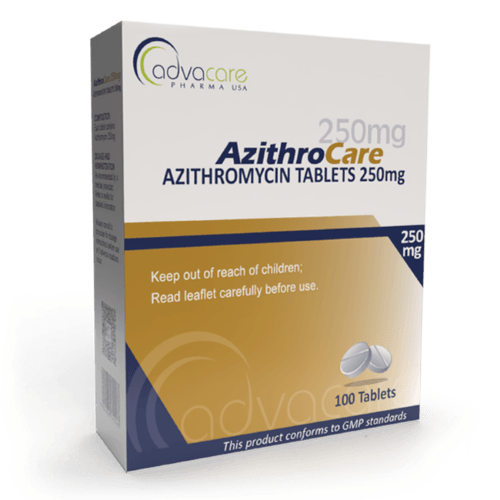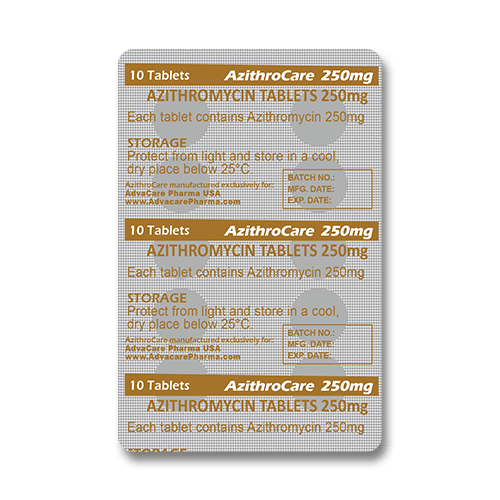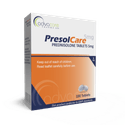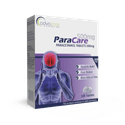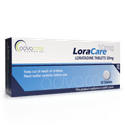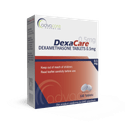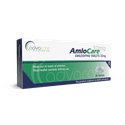- Home›
- Pharmaceuticals›
- Pharmaceutical Tablets›
- Azithromycin Tablets
Azithromycin Tablets
Dosage
Packaging
What is Azithromycin?
Active Ingredients: Azithromycin
Azithromycin Tablets are an antibiotic drug used to treat a wide range of bacterial infections, such as pneumonia, infections of the nose and throat, skin infections, Lyme disease, and some sexually transmitted infections. Azithromycin may be used by patients with hypersensitivity to penicillin.
Azithromycin is a broad-spectrum, semi-synthetic antibiotic that belongs to the subclass known as azalides. The active ingredient works by inhibiting bacterial protein synthesis by binding to the 23S rRNA of the 50S ribosomal subunit, which impedes the assembly of the ribosomal subunit. Bacterial cells are then unable to assemble essential proteins and are killed and new ones are prevented from growing. Azithromycin is effective against many gram-positive and gram-negative bacteria.
AdvaCare is a GMP-certified producer and supplier of Azithromycin Tablets and Capsules. This drug is produced in our facilities in China, India, and the USA. We routinely perform audits to ensure our products meet international quality and safety standards.
Why are we a leading Azithromycin manufacturer?
As a reputable Azithromycin manufacturer, we are dedicated to ensuring that GMP guidelines and standards strictly apply to the manufacture of our entire range of 200+ pharmaceutical treatments in tablet dosage form.
AdvaCare Pharma is an American pharmaceutical company committed to the manufacture of high-quality, affordable pharmaceuticals for a global market. The extensive international network that we partner with includes pharmaceutical distributors, hospitals, pharmacies, and a variety of other medical institutions. Our vision is to manufacture Azithromycin Tablets, and other quality-assured oral solid treatments, that get into the hands of those that need them most.
Uses
What is Azithromycin used for?
Azithromycin is indicated for the treatment of some types of bacterial infection, such as:
- pneumonia
- bronchitis
- sinusitis
- strep throat
- community-acquired pneumonia (CAP)
- urethritis and cervicitis due to sexually transmitted infections, such as chlamydia and gonorrhea
- disseminated Mycobacterium avium complex (MAC) infection
- traveler's diarrhea
How should Azithromycin Tablets be used?
This medication is intended to be taken orally. Azithromycin Tablets should be taken with a glass of water once a day, preferably at the same time. They may be taken with or without food and can be taken with a meal to reduce the occurrence of an upset stomach. Do not take antacids that contain aluminum or magnesium for 2 hours before or after taking Azithromycin Tablets.
Although it is common to feel better early during therapy, the medication should be taken exactly as directed. Not completing the full course of therapy may decrease the effectiveness of the immediate treatment and increase the likelihood of developing a bacterial infection that will be resistant to Azithromycin Tablets or other antibacterial drugs in the future.
What dose should be taken and for how long?
Adults Dosage may vary based on different medical indications:
- For the treatment of pneumonia, strep throat, skin infection, and bronchitis, the recommended dosage is a single dose of 500mg on day 1, followed by once-daily doses of 250mg on days 2-5.
- For the treatment of sinusitis, the recommended dosing regimen is 500mg once daily for 3 days.
- For the treatment of gonococcal (gonorrhea) urethritis and cervicitis, the recommended therapy is a single 2g dose.
- For the treatment of genital ulcer disease (chancroid) and non-gonococcal urethritis and cervicitis, the recommended therapy is a single 1g dose.
- For the prevention of disseminated Mycobacterium avium complex (MAC) disease, the recommended dose of azithromycin is 1200mg taken once weekly. This dose of azithromycin may be combined with rifabutin.
- For the treatment of disseminated MAC infections, the recommended dose is 600mg daily in combination with ethambutol.
Children (5 months - 17 years) Azithromycin can be administered to children (5 months-17 years), but oral suspensions are typically recommended for more accurate weight-based dosing.
The exact dose is based on medical condition, response to treatment, age, and weight. Refer to a doctor or pharmacist for guidelines on dosage. Do not exceed what they advise.
Who can use Azithromycin?
Azithromycin can be administered to adults and children (5 months-17 years), but caution is advised for specific groups of patients.
Pregnant Animal and human studies have not shown evidence of fetal harm with azithromycin use during pregnancy.
Available human data spanning several decades have not identified any drug-associated risks for major birth defects, miscarriage, or adverse maternal or fetal outcomes. At large doses, animal studies have not shown evidence of drug-induced fetal malformations. Postnatal decreases in viability and delayed development in offspring have been observed in animals receiving azithromycin during earlier stages of pregnancy, but these effects were not observed in animals that received azithromycin later in pregnancy.
Nursing Azithromycin is excreted in human milk and non-serious adverse reactions (diarrhea, vomiting, and rash) have been reported in nursing infants after azithromycin exposure. The benefits of breastfeeding, the clinical need for azithromycin, and any potential adverse effects on the breast-fed infant should all be considered when discussing azithromycin use while nursing.
Infantile hypertrophic pyloric stenosis (IHPS) has been reported in neonates exposed to azithromycin. If an infant experiences vomiting or irritability while nursing, contact a doctor immediately.
Pediatric Reported adverse reactions were comparable to those in adults and mostly involved the gastrointestinal tract. These observations were made based on daily doses of 10 to 20mg/kg/day.
Geriatric Studies found no evidence of differences in the safety or efficacy of azithromycin therapy in older adults (≥ 65 years) compared to younger adults. The adverse reactions in older adults were generally similar to those seen in younger patients, except for a higher incidence of gastrointestinal reactions and reversible hearing impairment. Geriatric patients may be more likely to develop Torsades de Pointes arrhythmias. Dosage adjustments do not appear necessary, but a greater sensitivity to medications cannot be ruled out.
What should one do in case a dose of Azithromycin Tablets is missed?
If a dose of Azithromycin Tablets is missed, it is recommended to take the missed dose as soon as remembered. However, if it is close to the time for the next scheduled dose, it is advisable to skip the missed one and avoid doubling up on doses.
Other warnings
In hypersensitive patients, there is a potential for rare but serious allergic reactions, including angioedema, anaphylaxis, and dermatologic reactions (e.g., acute generalized exanthematous pustulosis (AGEP), Stevens-Johnson Syndrome, toxic epidermal necrolysis) from azithromycin therapy. Cases of fatalities and drug reaction with eosinophilia and systemic symptoms (DRESS) have also been reported. It is possible for allergic symptoms to recur after the initial allergic reactions and therapy discontinuation.
Adverse hepatotoxic events, such as abnormal liver function, hepatitis, cholestatic jaundice, hepatic necrosis, and hepatic failure, have been reported, some of which have resulted in death. Azithromycin should be discontinued immediately upon any signs and symptoms of hepatitis.
Adverse cardiac events, such as prolonged cardiac repolarization and increased QT interval, have been reported and are associated with the risk of developing arrhythmias and Torsades de Pointes. When prescribing azithromycin, providers should consider the risk of QT prolongation in patients with impaired heart function, those who are taking other drugs known to prolong the QT interval, those with ongoing proarrhythmic conditions (hypokalemia or hypomagnesemia, bradycardia), and those taking Class IA (quinidine, procainamide) or Class III (dofetilide, amiodarone, sotalol) antiarrhythmic agents.
An approximate two-fold increase in the short-term risk of acute cardiovascular death during the first 5 days of azithromycin treatment has been seen in adults and does not appear to be limited to those with pre-existing cardiovascular conditions. These data have not established or disproven a causal relationship, but this potential risk should be taken into consideration when prescribing.
Clostridium difficile-associated diarrhea (CDAD) has been reported with use of azithromycin and may range in severity from mild diarrhea to fatal colitis. Treatment with antibiotics alters the flora of the colon, which can lead to overgrowth of C. difficile. Certain strains of C. difficile can cause increased morbidity and mortality. Patients presenting with diarrhea up to weeks or months after the completion of azithromycin treatment should be monitored for CDAD.
New onset of myasthenic syndrome and exacerbation of pre-existing myasthenia gravis have been reported in patients receiving azithromycin therapy.
Side Effects
As with all pharmaceuticals, some unwanted effects can occur from the use of Azithromycin Tablets.
Common side effects include, but may not be limited to:
- mild diarrhea
- stomach pain and dizziness
- itching
- loss of appetite
- mild fever
- sleep problems
Seek medical attention if the following develop:
- watery or bloody diarrhea
- hives
- difficulty breathing
- irregular or fast heartbeat
- severe stomach or abdominal pain
- swelling of the face, lips, tongue, or throat
- unusually severe body reaction
For a comprehensive understanding of all potential side effects, consult a medical professional.
If any symptoms persist or worsen, or you notice any other symptoms, please call your doctor.
Precautions
Do NOT use Azithromycin Tablets if:
- You have had jaundice or liver problems caused by taking azithromycin.
- You are allergic to azithromycin or to similar drugs, such as erythromycin, clarithromycin, telithromycin, or troleandomycin.
Due to possible drug interactions, consult with your doctor about any medications you are taking before your treatment.
Antibiotics like azithromycin can sometimes cause a type of diarrhea caused by resistant bacteria. If you experience persistent or severe diarrhea, inform your doctor.
This medication may not be suitable for people with certain conditions, so it is important to consult with a doctor if you have any health conditions.
References
Azithromycin for Prevention of Exacerbations of COPD
Chronic obstructive pulmonary disease (COPD) is frequently treated with macrolide antibiotics to reduce acute exacerbations. This randomized trial investigated whether azithromycin could reduce these exacerbations.
The study included 1,577 patients, with 1,142 (72%) receiving azithromycin (250mg daily) and the remaining patients receiving a placebo. Patients treated with azithromycin had a median time of 266 days before experiencing their first exacerbation (95% confidence interval [CI], 227 to 313), compared to 174 days (95% CI, 143 to 215) for those receiving placebo (P < 0.001).
The conclusion is that taking azithromycin daily for one year can reduce the frequency of exacerbations and improve the quality of life in patients with COPD.
Azithromycin in the treatment of COVID-19: a review
This research aimed to assess the efficacy of azithromycin in treating SARS-CoV-2 during the COVID-19 pandemic. The study demonstrated that azithromycin has immunomodulatory properties that regulate cytokine production, maintain epithelial cell integrity, and prevent lung fibrosis.
Although the evidence for the efficacy of antibiotics in COVID-19 cases is still inconclusive, azithromycin shows several positive effects and can help prevent secondary bacterial infections.
You might be interested in...
Why AdvaCare Pharma?
As an industry leader, we are aware of our responsibility to provide affordable and sustainable solutions to improve healthcare worldwide.
